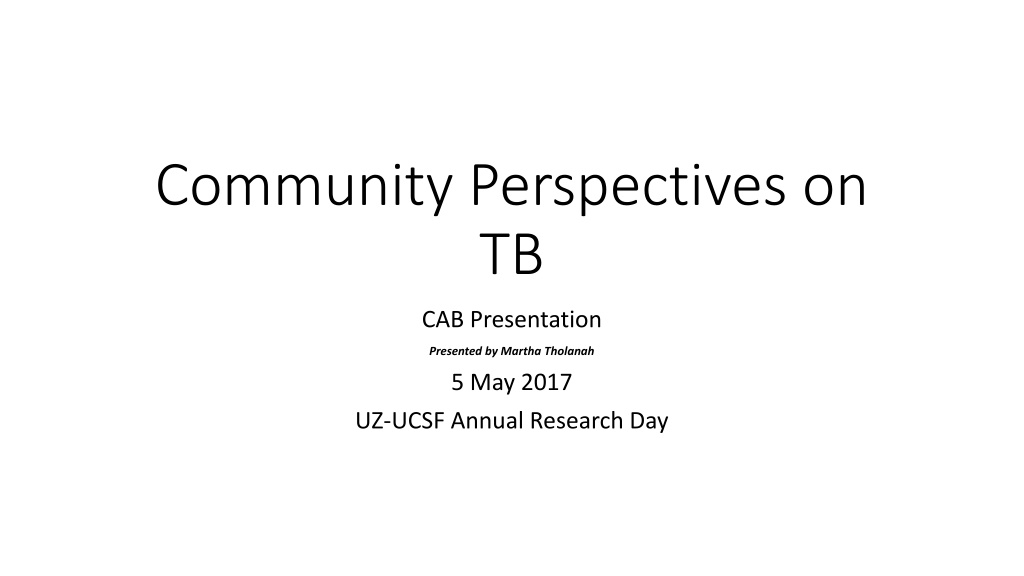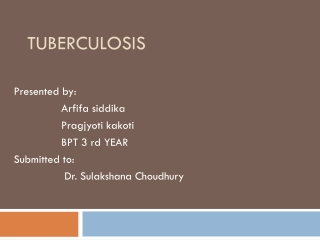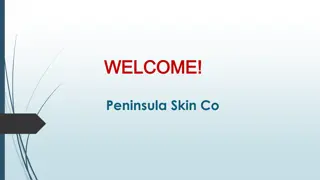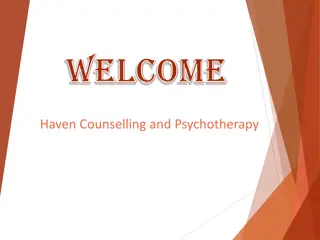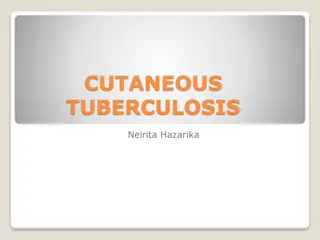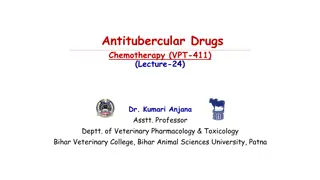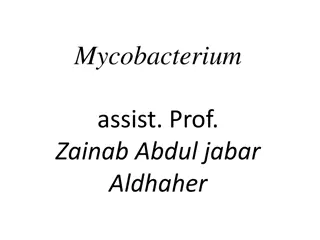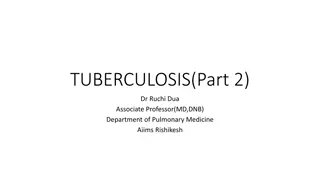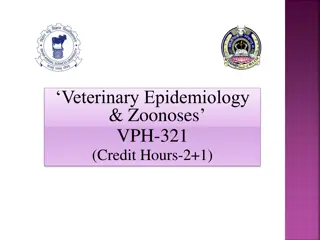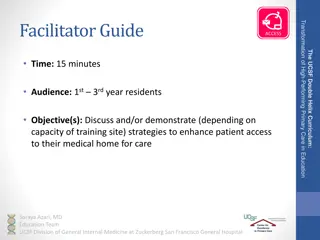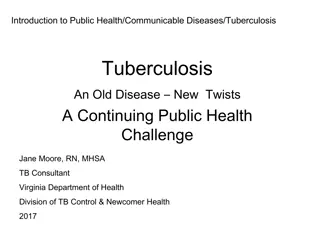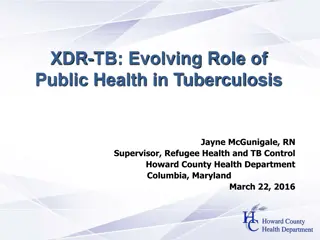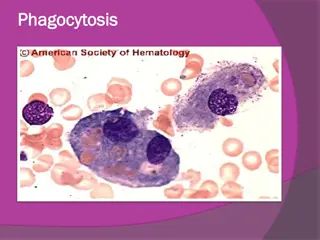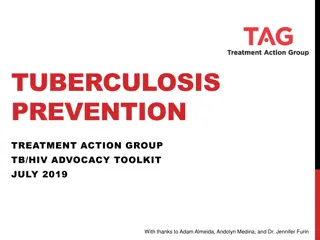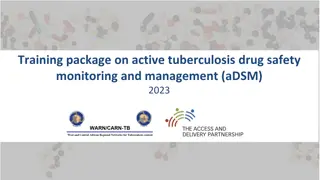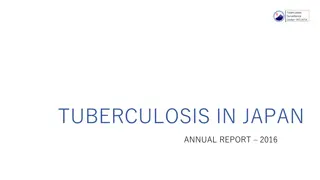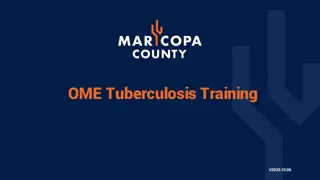Community Perspectives on Tuberculosis Research: Insights from Martha Tholanah's Presentation at UZ-UCSF Annual Research Day
Martha Tholanah's presentation at the UZ-UCSF Annual Research Day highlighted the valuable input of community representatives in TB research. The community voices emphasized the need for continued progress in combating TB, celebrating advancements like shorter treatment durations and increased political commitment. However, challenges such as access to diagnosis and treatment remain, particularly in rural and peri-urban areas. Addressing concerns around TB diagnosis fees, access to treatment, and risks like artisanal mining are crucial for a comprehensive approach to ending TB.
Download Presentation

Please find below an Image/Link to download the presentation.
The content on the website is provided AS IS for your information and personal use only. It may not be sold, licensed, or shared on other websites without obtaining consent from the author. Download presentation by click this link. If you encounter any issues during the download, it is possible that the publisher has removed the file from their server.
E N D
Presentation Transcript
Community Perspectives on TB CAB Presentation Presented by Martha Tholanah 5 May 2017 UZ-UCSF Annual Research Day
We are here as community representatives in research We bring the voices - applause, concerns and aspirations - from the communities in which we reside We hope the messages from community will enlighten, inform, enhance and help shaping of future studies Much progress has been made in combating TB, but much more can be done to end TB It is possible to end TB No one should be left behind
We Applaud Advances.. With the advent of use of Gene Xpert machine, TB treatment is reduced to 6 months as compared to 8 months also measures Rifampicin resistance Research and policies have greatly contributed to the reduction of incidence and prevalence of TB Shortening of duration and pill burden (fixed dose combination) Short course obviously reduces serious risk of worsening resistance to TB MDR and XDR Cost effective and improves cure rate as well as quality of life for the patient and his/ her family
We Celebrate Political commitment by leaders through the TB caucus launched July 2016 Decentralisation of services The media increasingly taking up the community stories on TB The MOHCC and The Union initiating and supporting a mentorship programme for journalists covering TB stories The UZ-UCSF for the increasing number of TB studies being taken on board
Concerns For one to be diagnosed for TB they pay consultation fees (Hospital $10 & clinics $5) and chest x-rays Other forms of TB (other than pulmonary) are more difficult to diagnose, hence expensive While the policy on screening HIV and TB is in place, it is not always implemented Access to TB treatment is a challenge to those living in the rural areas and peri-urban farms With the difficulties in the economy, many young people are engaging in artesanal mining, increasing their risk of acquiring pulmonary TB due to silica dust and poor ventilation.
Concerns Isoniazid preventive therapy adverse reactions not much information given by HCW (outside research) Poverty - Diagnostics non-availability of diagnostic machines, or broken down machines, shortages, No vitamin supplements (pyridoxine) supplied in some cases Little community education on chronic conditions that elevate the risk of TB infection, e. g. diabetes mellitus, HIV Advocacy and funding for TB prevention and treatment is not prioritised
Women and TB Women bear the brunt of the burden in the community regarding religious and cultural/ traditional practices that hinder access to medical assistance. Some churches bar their members from going to clinics for medical treatment. However, the members do not live in isolation when outside church services, hence they can continue to spread TB when there is no correct treatment. Women, as carers in the home of those who are ill with TB, are at risk of acquiring the infection.
Women and TB Women who believe in medical treatment, and are in religious sects who deny it, often have to seek medical treatment behind the backs of their spouses and religious leaders This results in difficulties for women in terms of adherence as they also try to conceal the medicines This can also result in many cases of TB in the community remaining undetected The burden is multiplied several times over when the woman is disabled, or where she has to care for someone with TB who is also disabled.
TB and Disability Many times poverty is an integral part of this combination Access to health facilities is hampered by mobility difficulties as well as lack of money for bus fares Adherence may be hampered by inadequate nutrition as the person with disability may be unable to fend for themselves People with disabilities face several layers of stigma and discrimination disability, poverty, TB infection, HIV infection, CVD, Hypertension, mental illnesses
Children and TB Difficult for communities to identify TB symptoms in children this prevents early presentation at health facilities for further investigation Poor nutrition due to economic challenges worsen outcomes for children High levels of stigma and discrimination make some parents fear disclosing a TB diagnosis as some communities associate this with HIV infection Trying to maintain secrecy of child s TB diagnosis result in some parents not giving the medicines at prescribed times, or missing doses altogether
Our wishes Wider range of TB regimens to lighten the burden for patients More options for PLHIV on ART as we worry about limited options versus drug-drug interactions More studies to ensure the pill burden is further reduced to improve adherence Need more research on TB treatment formulations for children and adolescents, as we find them being given adult formulations The support that used to be given in the intensive phase (DOTS) is no longer being offered at the level it used to we need this to be restored There is need for support groups for people with TB so as to deal with the high levels of stigma and discrimination
Acknowledgements People with TB who freely shared their stories Health care workers in the communities Clinical research site and staff MOHCC The Union Regulatory authorities Community Advisory Board members Community department
